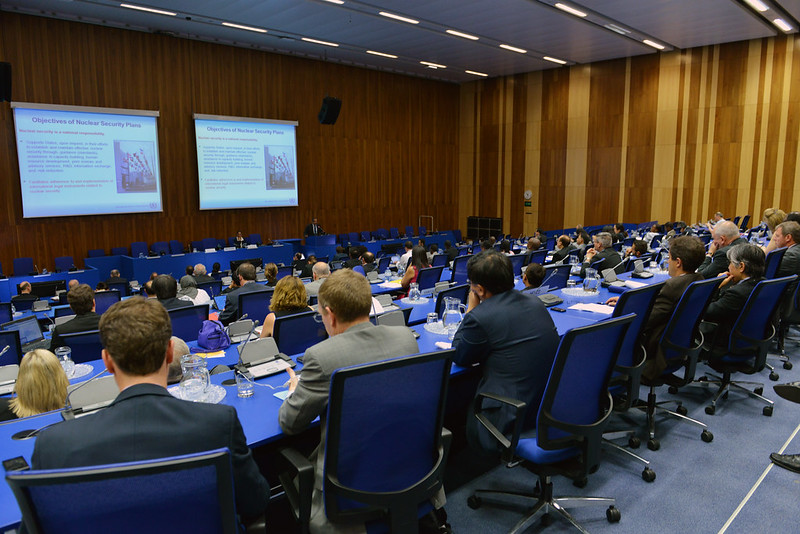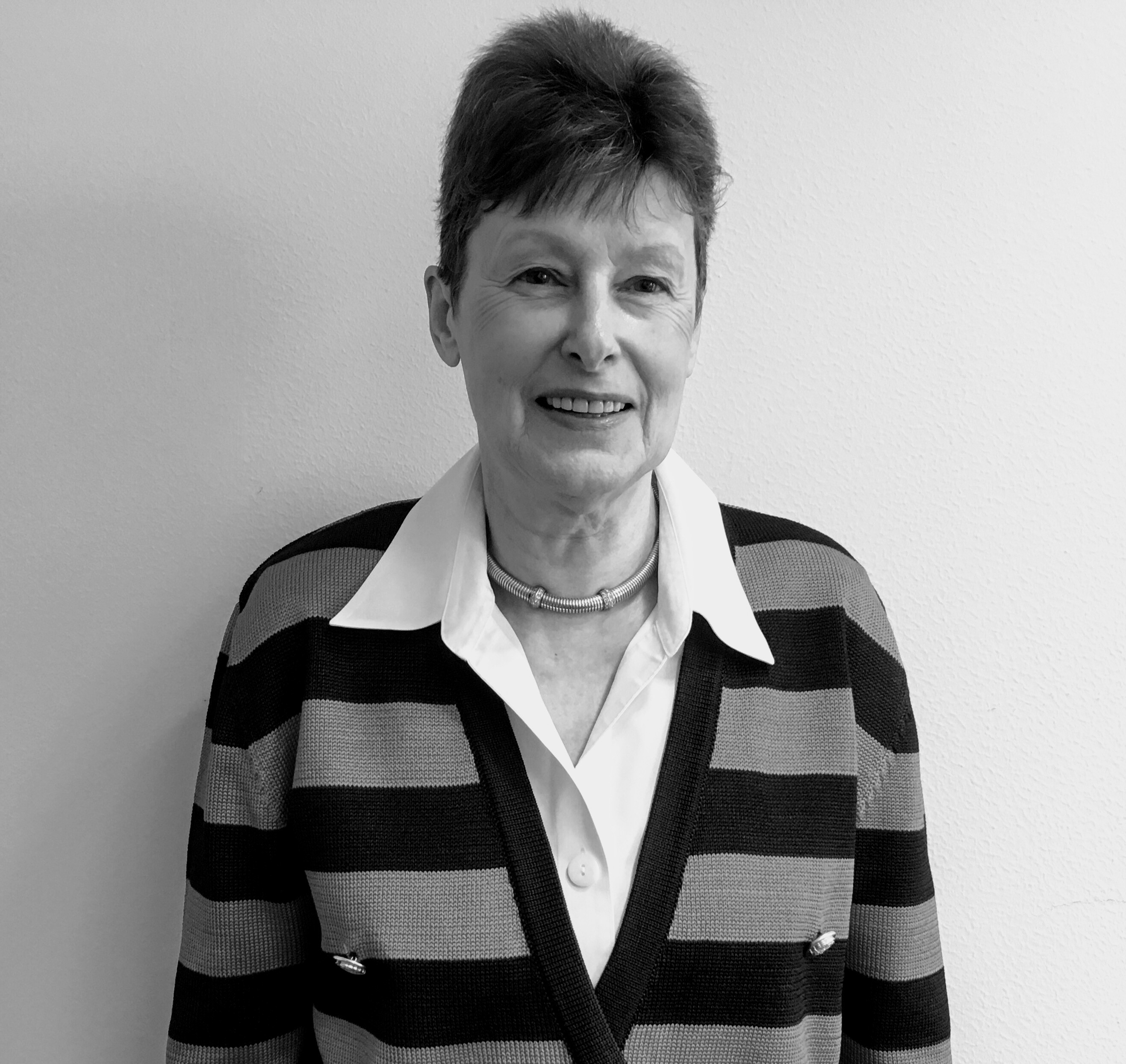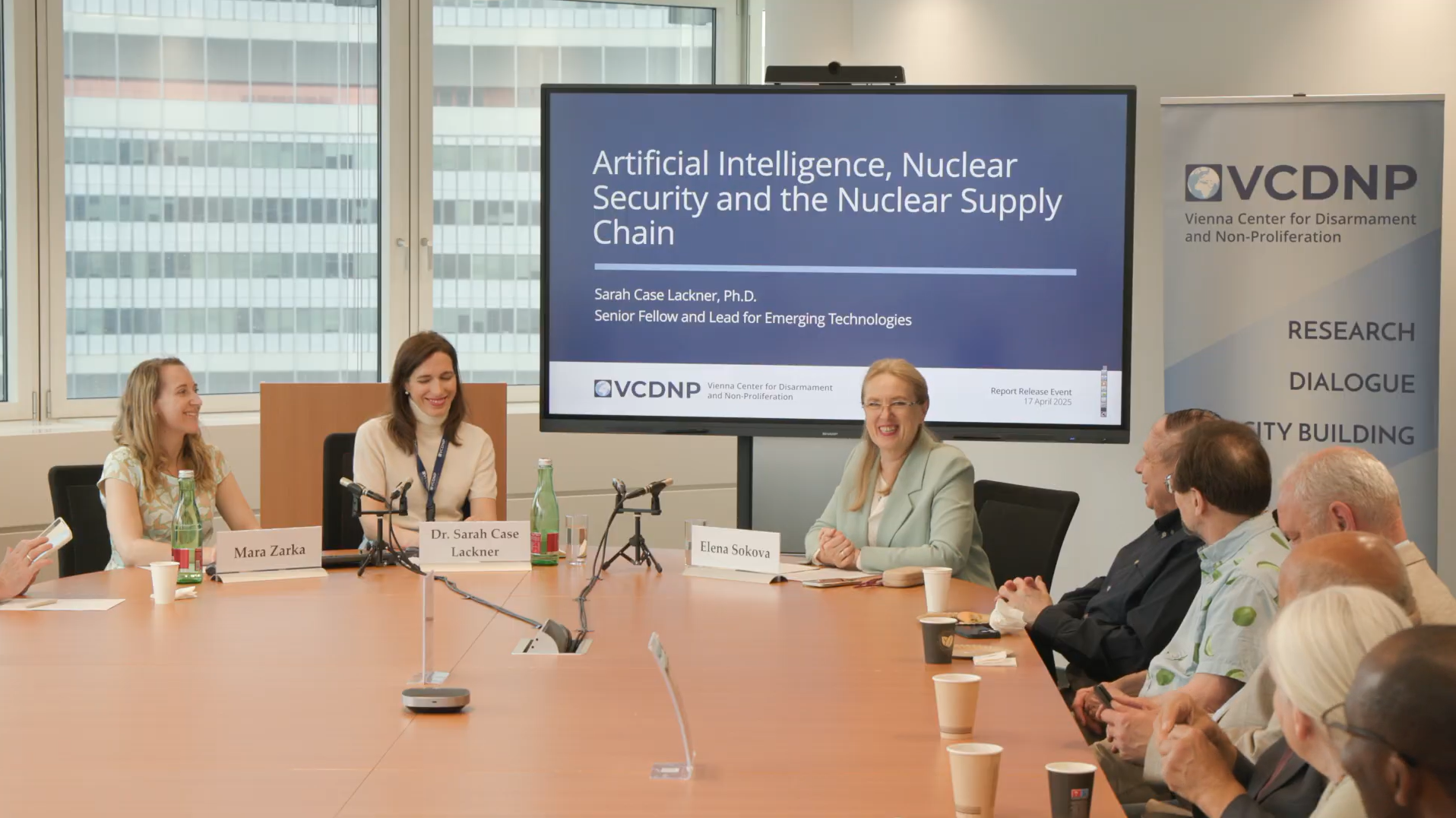
On 17 April 2025, the Vienna Center for Disarmament and Non-Proliferation (VCDNP) unveiled a new report, entitled Nuclear Security and the Security of the Nuclear Supply Chain in the Age of Artificial Intelligence. The report draws on discussions at a two-day brainstorming workshop held on 14 and 15 January 2025.
VCDNP Executive Director Elena K. Sokova opened the seminar by emphasising the impact of AI on the civilian nuclear sector, including in nuclear facilities and the nuclear supply chain. While AI technology can offer benefits, such as improved operational efficiency and security, it also brings with it new risks. Ms. Sokova highlighted the complexity of the supply chain for nuclear facilities, which rely on thousands of components, and the high potential consequences of a nuclear event, making the supply chain a critical area of concern.
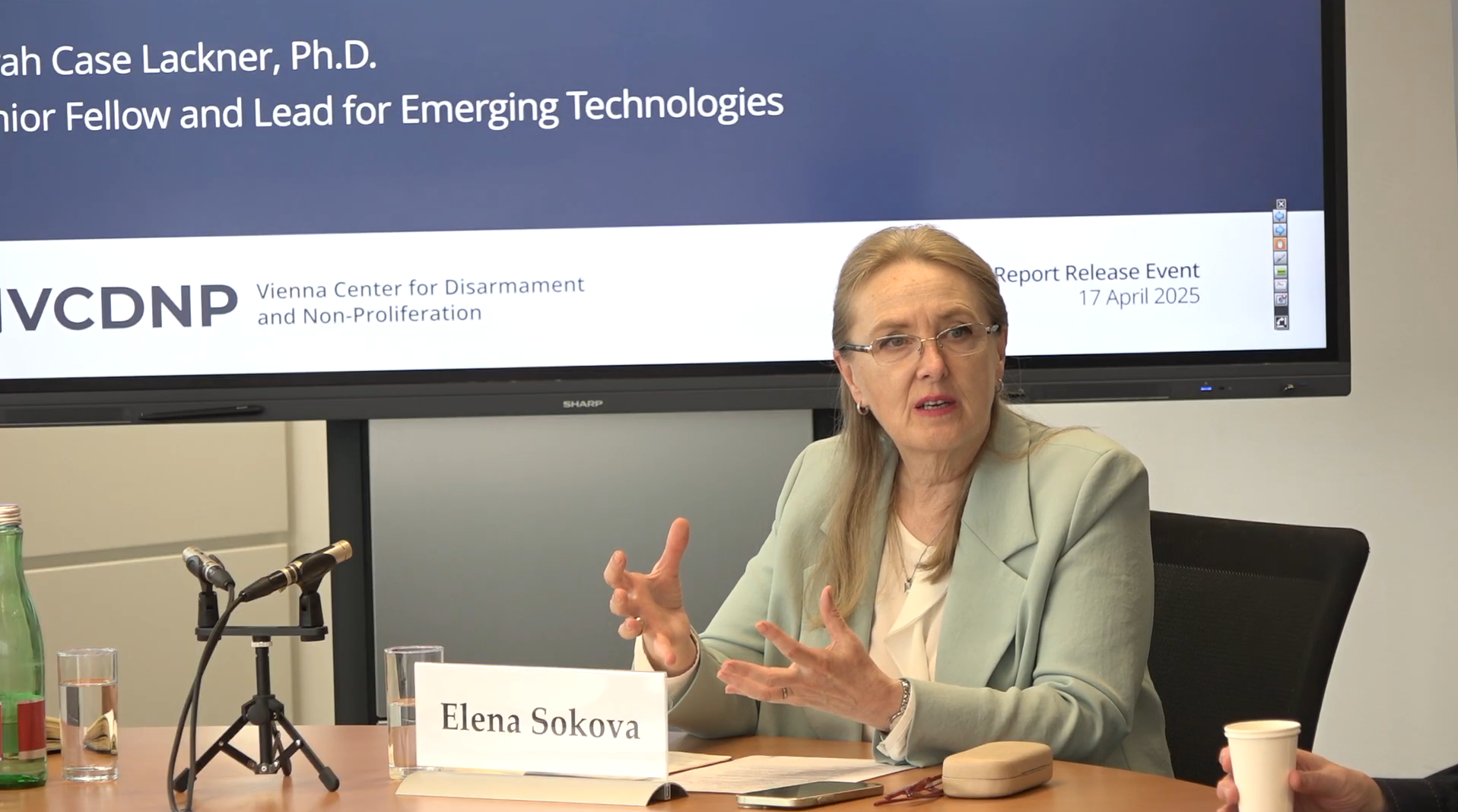
Following this introduction, VCDNP Senior Fellow Dr. Sarah Case Lackner presented the key conclusions of the report, authored by Dr. Case Lackner and Mara Zarka.
Dr. Case Lackner highlighted the risks of AI associated with nuclear facilities. She noted three primary categories of nuclear security risk associated with AI technology and the nuclear supply chain: (1) security challenges associated with the supply chain for AI systems installed in nuclear facilities; (2) the potential for widely available AI models to enhance the abilities of malicious actors to infiltrate the nuclear supply chain; and (3) the increasing need for data security in the age of AI.
Dr. Case Lackner reviewed the key conclusions of the expert report:
In closing, she emphasised that today's AI are not the last disruptive technology that will affect nuclear security, and that governments and the nuclear industry need to be prepared for the next major disruption, which may or may not be directly related to AI technology.
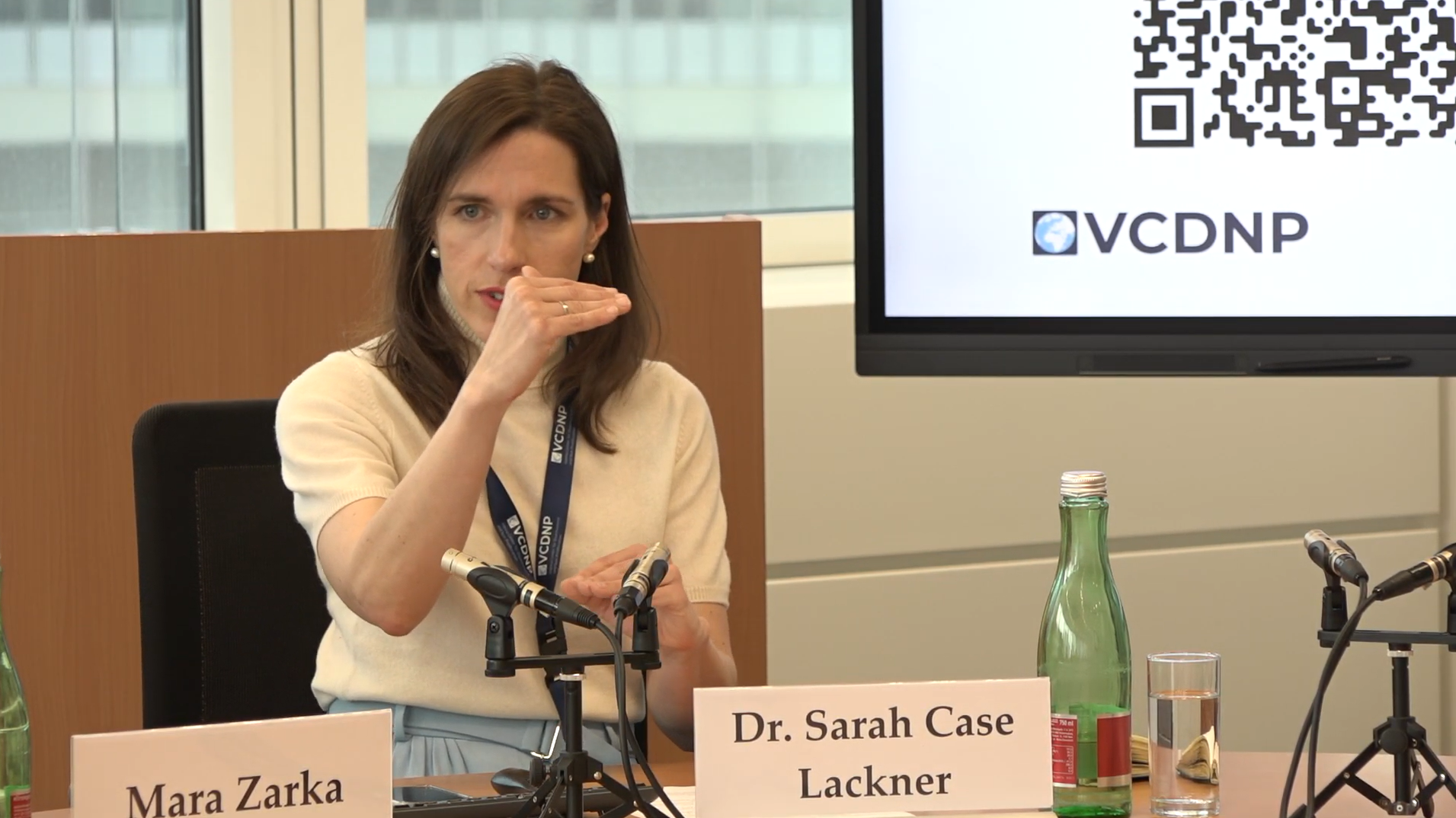
Mara Zarka, Research Associate at the VCDNP, expanded on the role of humans in the challenges posed by AI technology. She highlighted how AI-enhanced social engineering tactics, such as phishing, voice cloning, and deepfakes, have the potential to manipulate personnel and exacerbate insider threats. She also cautioned against overreliance on AI, noting limitations in testing against all possible scenarios and the inability to fully understand an AI systems’ logic and decision-making processes. Ms. Zarka recommended a gradual approach to AI adoption and further research into human-AI interaction to ensure safe and effective implementation in nuclear facilities.
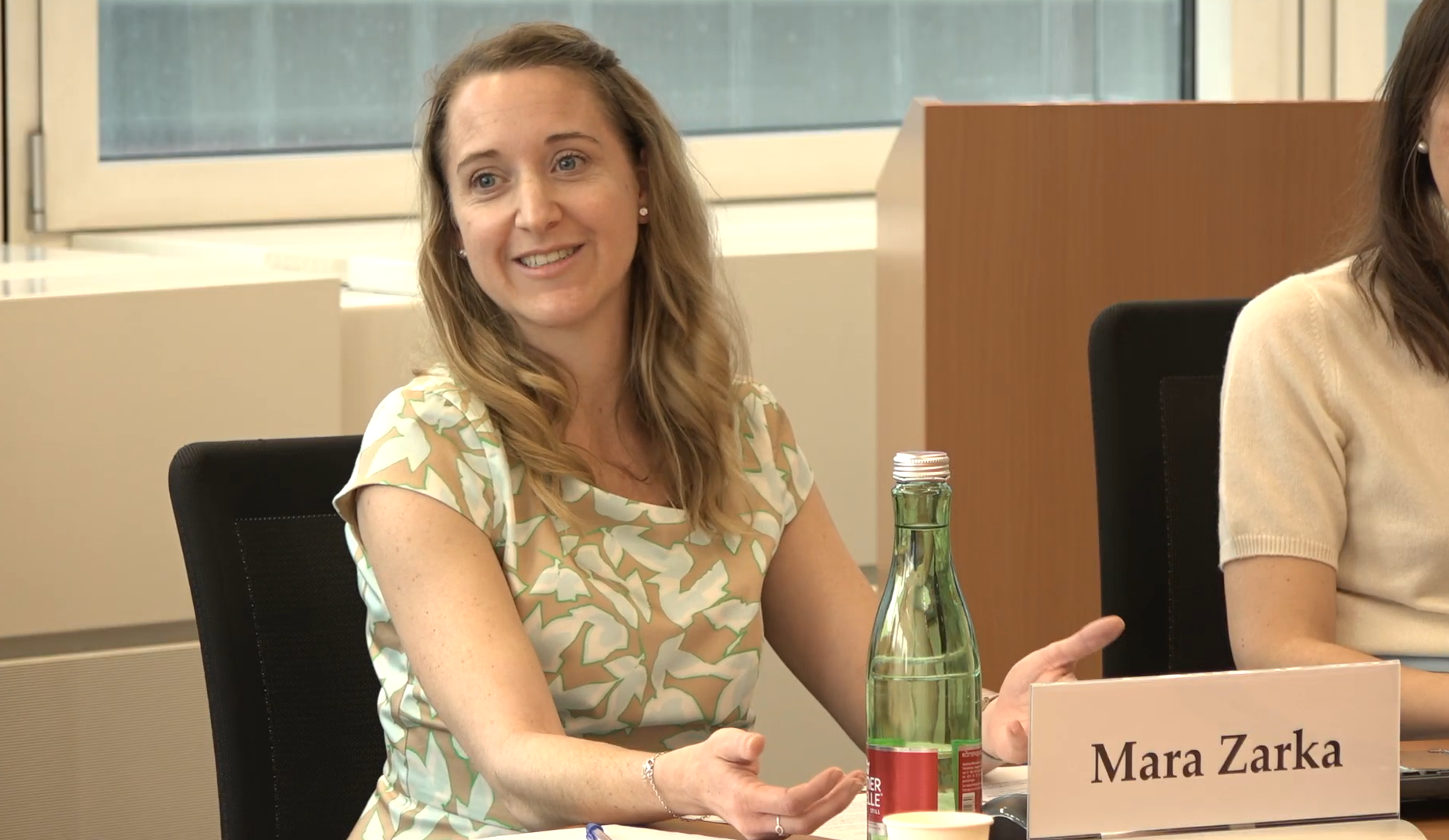
During the subsequent Q&A session, participants raised critical questions about AI accountability, reliability, and regulatory gaps. The speakers stressed that the details of implementation will be key, including how operators oversee secure AI system integration and the development and enforcement of relevant regulations by national regulatory bodies. Concerns were also raised about the risk of retrofitting AI into older nuclear plants, which is likely to require case-by-case consideration. Finally, it was emphasised that further international discussion and information sharing on the impact of AI technology on the nuclear sector is needed, particularly with respect to nuclear security, though the recent tripartite paper by US, Canadian, and UK regulators as well as recent and ongoing work at the IAEA is a valuable start.
This event and the report were made possible thanks to generous support from Global Affairs Canada.



